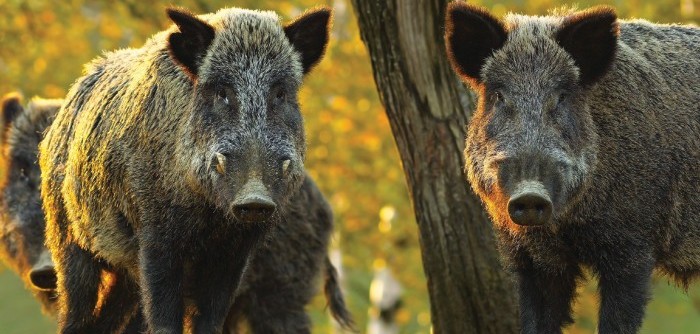If African swine fever (ASF) crosses the border from Poland to reach German wild boar, the German export market of approximately 500,000 tonnes of pork would be at risk.
EU prices could drop by 20-40%, although, according to a new AHDB report, the consequences of an outbreak for the EU market would not be as severe as it would have been 18 months ago, due to the ongoing demand for pork from China.
The ASF virus has been found in wild boar in western Poland just 12km from the German border, prompting renewed concerns about the impact on the EU pork sector if the virus found in Germany.
In a new report, AHDB points out that Germany is a large exporter of pork to non-EU destinations, many of which tend to completely ban pork from ASF-affected countries, even if the disease is just in wild boar.
With Germany exporting around 500,000 tonnes per year, this pork would probably need to stay within the EU instead, AHDB analyst Bethan Wilkins said.
Back in September 2018, AHDB produced a report highlighting the potential market impact if ASF were to spread to German wild boar.Many aspects of this report still stand.
However, the EU trading situation has changed significantly over the past 18 months, with much more pork sent to China last year and Chinese import demand is expected to increase further this year.
If German pork can no longer be sent, as other exporters are now shipping so much out of the EU, supplies on the EU market could increase to levels similar to those seen in 2018. EU pork prices could therefore fall to 2018 levels, representing a 20-40% drop, although Germany will, of course, be more affected than nations maintaining access to China, with export prices still elevated, Ms Wilkins added.
“Despite the fact Germany has become more reliant on ASF-sensitive countries over the past 18-months, it seems that the spread of ASF into Germany may have less severe consequences than it would have 18 months ago,” she said.
“The sharp rise in Chinese import demand has drawn enough product from the EU market that if German pork is retained, the market is unlikely to be swamped. Prices are still likely to fall, but probably not to the historic lows we might have seen otherwise.”
Much of this analysis is dependent on the assumption that Chinese import demand holds, and even increases this year, she adds.
“The pork supply gap is expected to be even larger than in 2019, so this seems likely, but international relations and the current coronavirus situation do bring some uncertainty,” Ms Wilkins said.




